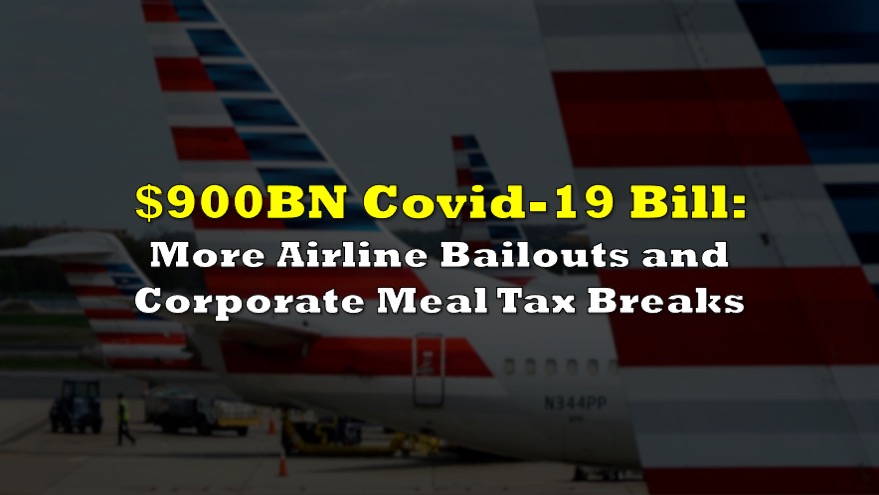Now that the much-anticipated coronavirus relief bill has finally been agreed upon by US lawmakers after months of deadlock, we can shift our attention to what the bill is actually comprised of thus far.
For starters, the bill does come with some good news in that it will include a second round of benefits for struggling small businesses, with an additional $284 billion allocated towards the widely-misused Paycheck Protection Program in the form of forgivable loans. Another $1.8 billion in tax breaks is also being granted for small businesses that provide paid sick leave for their employees.
The stimulus bill also comes equipped with a one-time stimulus check to the tune of a rationed $600 for eligible Americans making less than $75,000 per year. In addition, the $300 per week unemployment benefits top-up has been extended until the end of March, as have the PUA and PEUC programs for gig economy workers and those that are long-term unemployed. The moratoriums on evictions have also been extended, alongside an earmarked $25 billion for rental assistance for those Americans struggling to keep a roof over their head. Other much-needed components of the bill include education funding, food stamp benefits, and funds for the vaccine rollout.

The second largest stimulus bill in US history also includes other, more shadier components, such as $15 billion for payroll assistance for airlines. Although in theory a payroll assistance program would allow over 32,000 laid off airline employees to return to work until at least March 31, the second round of stimulus does not include an enforcement clause, so it would not come as a surprise if workers continued to be laid off whilst airlines quietly allocated the funds for stock repurchases.
According to an analysis by Airlines for America and later quoted by Reuters, even if airlines do end up allocating the aid as intended, the assistance will not last until the end of March given their soaring daily cash burns. With passenger volumes currently reduced by 65% to 70% accompanied by rising cancellations, US airline carriers have been losing upwards of $180 million in cash each day; at that rate, a three-month window of aid will be gone just as fast as it was distributed.
The $45 billion transportation package also includes provisions for airports to the tune of $200 million, as well as $14 billion for public transit and $10 billion for state highways. In addition, the stimulus bill is also set to include important changes regarding the certification of new airplanes by the Federal Aviation Administration, namely as a result of the two fatal Boeing 737 MAX crashes that ended with 346 fatalities.
The emergency stimulus bill also comes equipped with a tax break for corporate meal expenses – something that US president Donald Trump has been an avid supporter of. Thus far, companies have only been able to deduct only 50% of their dining expenses off their federal taxes; however, that deduction has now been increased to 100%, allowing businesses to write off the full cost of their business meal. The deduction is supposed to help revive the embattled restaurant industry and a result was labeled as priority in negotiations, but according to critics, it will rather mostly benefit business executives – many of which are not in dire need of assistance.
Information for this briefing was found via Reuters. The author has no securities or affiliations related to this organization. Not a recommendation to buy or sell. Always do additional research and consult a professional before purchasing a security. The author holds no licenses.









